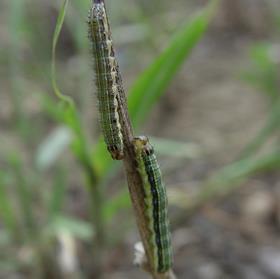
Plant Health Australia (PHA), the national coordinator of government-industry partnership for plant biosecurity, has received a A$600,000 grant from the Australian government to assist in the management of the fall armyworm.
The funding will help PHA coordinate research to address gaps in management of fall armyworm, while government and industry workshops will develop a national management plan.
Fall armyworm (Spodoptera frugiperda) was detected in Australia in January 2020, and poses a risk to a number of fresh produce crops, including apple, grape, orange, papaya, peach and strawberry.
Minister for Agriculture, Drought and Emergency Management, David Littleproud, was quick to highlight the risk the pest poses to Australian agriculture.
“[It] is a serious agricultural pest. The larval or caterpillar stage of the moth’s lifecycle can damage and destroy a wide variety of crops causing in some cases if not controlled large economic loss,” said Littleproud.
“It also has the potential to impact on our native and garden plants, so it can be a serious problem in our parks and backyard gardens too.
Littleproud said the workshops will also help guide investment in projects for monitoring and ongoing management of fall armyworm.
“This includes a series of projects that will investigate fall armyworm genetics, pesticide resistance, commercial and native hosts, and modelling of seasonal impacts on population dynamics.”



